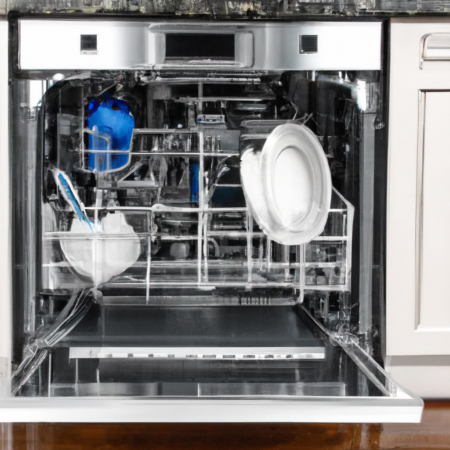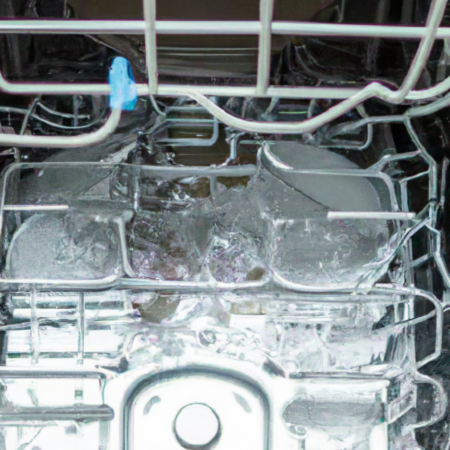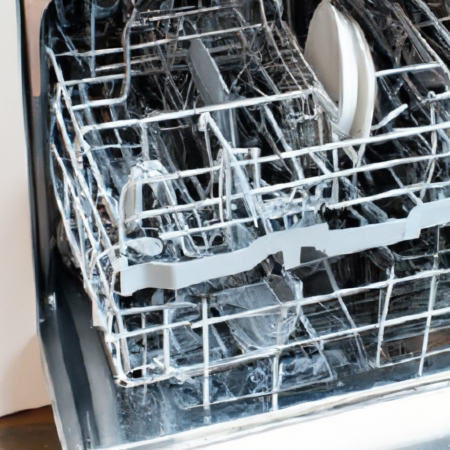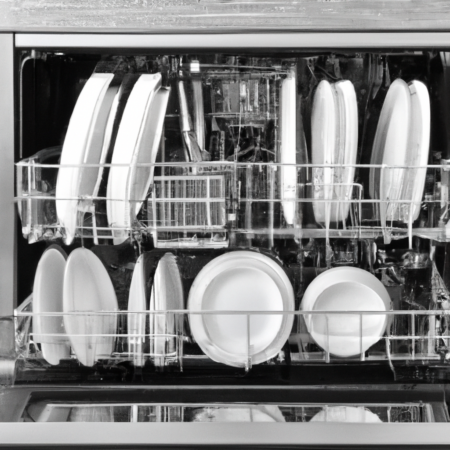Imagine never having to worry about washing dishes by hand again. With a dishwasher by your side, you can save time and energy, leaving dirty plates, glasses, and cutlery to be effortlessly cleaned in a matter of minutes. But have you ever wondered how long this modern-day miracle machine should last? In this article, we will explore the expected lifespan of a dishwasher, providing you with valuable insights to help you make informed decisions about your kitchen appliances. Say goodbye to endless scrubbing and hello to a dishwasher that will stand the test of time.
Understanding the Lifespan of a Dishwasher
Definition of Appliance Lifespan
The lifespan of a dishwasher refers to the period of time that the appliance is expected to function optimally before requiring replacement. It is a measurement that helps consumers understand the durability and longevity of their dishwashers.
Measuring Dishwasher Lifespan
The lifespan of a dishwasher is commonly measured in years, as it provides a clear indication of how long the appliance can be expected to operate before it would typically start experiencing performance issues or require extensive repairs.
Factors affecting the Lifespan
Several factors can influence the lifespan of a dishwasher. The quality of materials used in manufacturing, brand reputation, frequency of use, maintenance practices, and the presence of advanced features all play a role in determining how long a dishwasher will last.
Typical Lifespan of a Dishwasher
Average Lifespan of a Dishwasher
On average, dishwashers are designed to last between 8 to 12 years. However, modern advancements in technology and manufacturing have led to an increase in the lifespan of some high-quality models, with some lasting up to 15 years or more with proper care and maintenance.
Comparing Lifespans across Dishwasher Brands
It’s important to note that the lifespan of a dishwasher can vary significantly depending on the brand. Some renowned brands are known for producing durable and long-lasting appliances, while others may have a reputation for shorter lifespans. When purchasing a dishwasher, researching the reliability and customer reviews of different brands can help you make an informed decision.
What Industry Specialists Say
Industry specialists generally agree that the average lifespan of a dishwasher falls between 8 to 12 years. However, individual experiences may vary, and the lifespan of a dishwasher can be influenced by various external factors such as usage, maintenance, and the specific model.
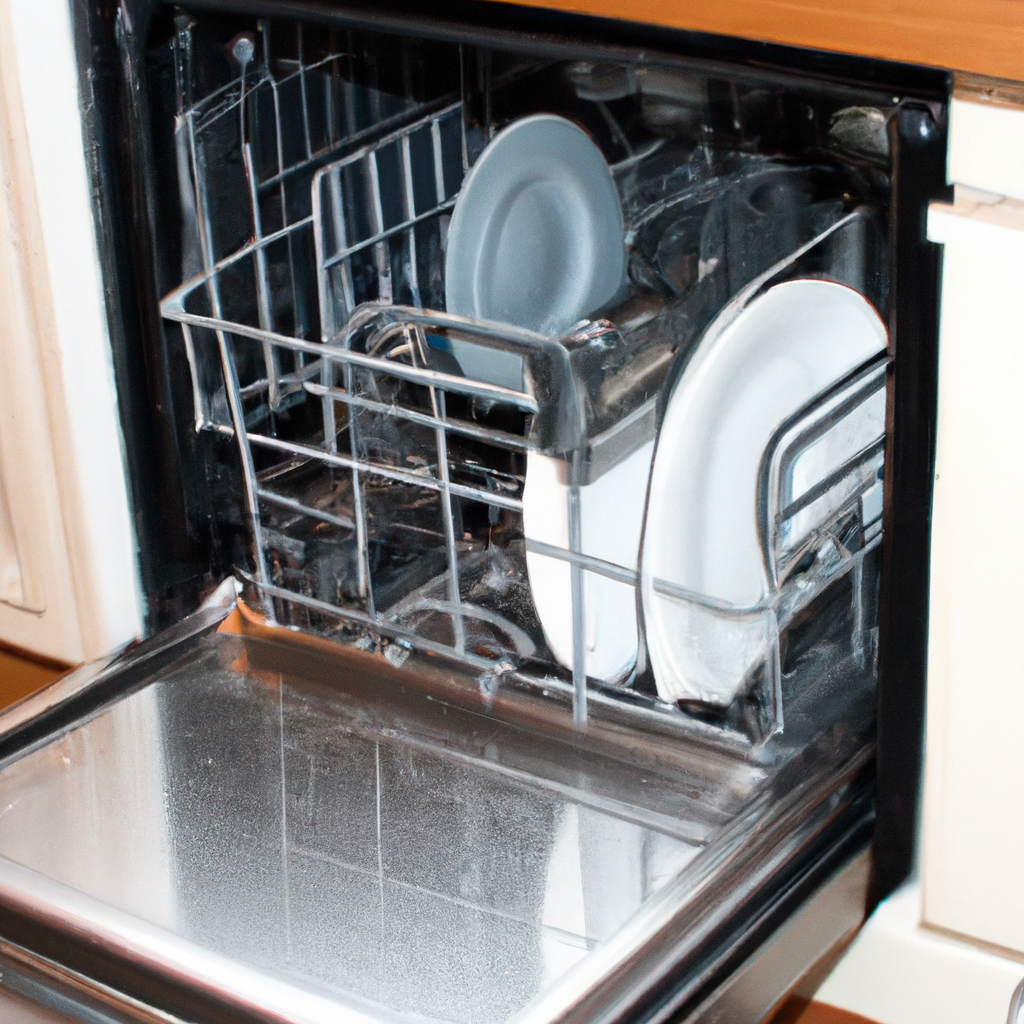
Signs Your Dishwasher May Need Replacement
Decrease in Performance
If you notice that your dishwasher is no longer cleaning dishes as effectively as it once did, it may be a sign that the appliance is nearing the end of its lifespan. Dishes may come out dirty or still have residue, indicating that the dishwasher’s cleaning mechanism may be deteriorating.
Increase in Noise
As dishwashers age, they may become louder and produce unusual noises during operation. This can be a result of worn-out components within the dishwasher. If the noise becomes excessive or disruptive, it may be time to consider replacing the appliance.
Frequent Repairs
If you find yourself frequently calling in technicians for repairs on your dishwasher, it may be a sign that the appliance is no longer reliable or cost-effective to maintain. Constant breakdowns and the associated repair costs can quickly add up, making replacement a more viable option in the long run.
Importance of Regular Dishwasher Maintenance
Benefits of Regular Maintenance
Regular maintenance is essential for prolonging the lifespan of a dishwasher. It helps prevent issues before they escalate, ensures optimal performance, and can save you money on significant repairs or the need for premature replacement. It also helps maintain cleanliness and hygiene, preventing limescale buildup and foul odors.
Maintenance Schedule for Your Dishwasher
To maintain your dishwasher properly, it’s recommended to follow a regular maintenance schedule. This includes cleaning the dishwasher’s interior, checking and cleaning the filters, inspecting the spray arms, and ensuring proper drainage. Additionally, using dishwasher-safe cleaning products and descaling agents can help keep your dishwasher functioning at its best.
How Maintenance Impacts Lifespan
By regularly maintaining your dishwasher, you can significantly extend its lifespan. Regular cleaning prevents clogs and blockages, ensuring that the dishwasher functions optimally. Additionally, maintenance allows for timely identification and repair of any minor issues, preventing them from turning into major problems that could shorten the appliance’s lifespan.
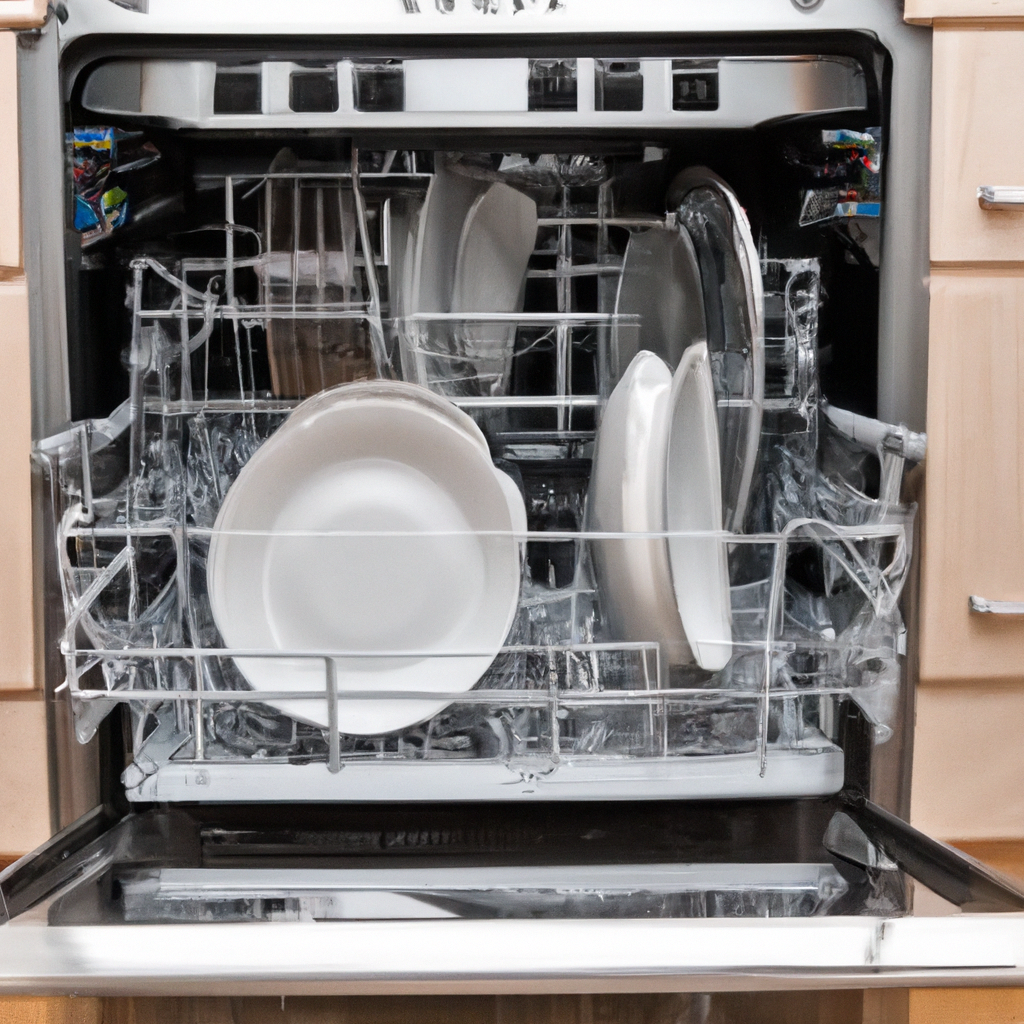
Common Dishwasher Problems and Solutions
Problems That Can Shorten the Lifespan
Several common problems faced by dishwashers can shorten their lifespan if left unaddressed. These include leaks, malfunctioning heating elements, clogged spray arms, faulty door latches, and electrical issues. Promptly identifying and resolving these problems is crucial to ensuring the longevity of your dishwasher.
Possible Repairs and Solutions
For several common dishwasher problems, there are often simple repairs or solutions that can be undertaken. For example, if you notice a leak, it may be due to a loose hose connection, which can be easily tightened. In the case of a clogged spray arm, removing and cleaning it thoroughly can restore its functionality. However, more complex issues may require professional assistance.
When to Repair vs When to Replace
Deciding whether to repair or replace a dishwasher depends on the nature and extent of the problem, as well as the age of the appliance. As a general rule, if the cost of repairs exceeds 50% of the value of a new dishwasher or if the appliance is nearing the end of its expected lifespan, replacement may be the more prudent option to consider.
Cost Implications of Dishwasher Replacement
Price Ranges for New Dishwashers
The price of a new dishwasher can vary significantly depending on the brand, features, and overall quality. As of 2021, entry-level dishwashers typically range from $300 to $600, while higher-end models with advanced features can cost anywhere from $800 to $1,500 or more. It’s important to consider your budget and prioritize the features that are most important to you when deciding on a replacement.
Long-term Financial Considerations
While the upfront cost of a new dishwasher may seem significant, it’s essential to consider the long-term financial implications. Investing in a high-quality, durable dishwasher may result in lower maintenance and repair costs over time. Additionally, energy-efficient models can lead to savings on utility bills, making them a cost-effective choice in the long run.
Comparing Cost of New Dishwasher vs Repairs
When deciding between repairing an existing dishwasher and purchasing a new one, it’s important to weigh the cost of repairs against the potential lifespan of the appliance. If the estimated cost of repairs is significant and the appliance is nearing the end of its expected lifespan, it may be more financially prudent to invest in a new dishwasher that offers better reliability and longevity.
The Impact of Dishwasher Usage on Lifespan
How Frequency of Use Influences Lifespan
The frequency of dishwasher usage can have a significant impact on its lifespan. Heavy daily use, such as in households with large families or commercial settings, can put more strain on the appliance and shorten its lifespan compared to occasional or moderate use. If you frequently run your dishwasher, it’s important to consider the higher workload when assessing its durability and expected lifespan.
Impact of Overloading the Dishwasher
Overloading the dishwasher with excessive dishes, cookware, or cutlery can strain the dishwasher’s components and reduce its effectiveness. This can lead to increased wear and tear, potential damage, and a shorter overall lifespan. It’s advisable to follow the manufacturer’s guidelines for loading and avoid overloading the dishwasher to ensure optimal performance and longevity.
Different Settings and Their Effect on Lifespan
Certain dishwasher settings, such as heavy-duty or extended cycles, may provide more rigorous cleaning but can also put additional strain on the appliance. While these settings may be necessary for heavily soiled dishes or specific requirements, using them frequently can potentially shorten the lifespan of the dishwasher. It’s important to strike a balance between using appropriate settings for the task at hand and considering the long-term impact on the appliance.
Dishwasher Features and Their Implications on Lifespan
Impact of Advanced Dishwasher Features on Lifespan
Advanced features, such as adjustable racks, soil sensors, and specialized wash cycles, can enhance the functionality and convenience of a dishwasher. However, these additional features can also introduce more complexity and increase the risk of component failure over time. It’s essential to consider the longevity and reliability of these features when evaluating their impact on the dishwasher’s overall lifespan.
How Energy Efficiency Affects Dishwasher Lifespan
Energy-efficient dishwashers are designed to use minimal water and electricity while still providing effective cleaning. This focus on efficiency can contribute to a longer lifespan, as these dishwashers are engineered to operate under less strain and with reduced wear and tear on their components. Opting for an energy-efficient model can potentially extend the overall lifespan of your dishwasher.
Role of Dishwasher Size on Its Lifespan
The size of a dishwasher can indirectly impact its lifespan, particularly in terms of workload and strain. Larger dishwashers can generally accommodate more dishes, reducing the need for multiple cycles and potential overloading. This can result in a lower workload per cycle and potentially extend the lifespan of the appliance.
Environmental Impacts to Consider When Replacing a Dishwasher
Environmental Cost of Dishwasher Production
While replacing a dishwasher may be necessary due to performance issues or the appliance reaching the end of its lifespan, it’s essential to consider the environmental cost of production. Dishwashers, like many household appliances, require resources and energy for manufacturing. Proper disposal or recycling of the old dishwasher can help reduce the environmental impact of its replacement.
Considering Dishwasher Recycling
When replacing a dishwasher, it’s important to explore recycling options for the old appliance. Many local municipalities or recycling centers offer programs to properly dispose of or recycle appliances, ensuring that valuable materials can be recovered and reused while minimizing environmental impact.
Choosing Energy-Efficient Models for Replacement
To reduce the long-term environmental impact, consider selecting an energy-efficient dishwasher when replacing your old appliance. Energy Star certified models are designed to minimize water and energy consumption while maintaining effective cleaning performance. By choosing an energy-efficient model, you can contribute to both environmental sustainability and potential long-term cost savings.
Tips for Extending the Lifespan of a Dishwasher
Best Practices for Dishwasher Use
To prolong the lifespan of your dishwasher, follow these best practices:
- Scrape off excess food before loading dishes to prevent clogs and strain on the appliance.
- Load the dishwasher following the manufacturer’s guidelines to avoid overloading.
- Use the appropriate settings for the level of soiling and avoid unnecessary heavy-duty cycles.
- Avoid using excessive detergent, as it can lead to buildup and potentially damage the dishwasher’s components.
Regular Cleaning and Upkeep
Regular cleaning of your dishwasher is vital to its longevity. Wipe down the interior with a damp cloth regularly, clean the filters, and remove any debris from the spray arms. Additionally, running a descaling cycle periodically can prevent limescale buildup and maintain optimal performance.
Professional Maintenance and Repairs
Engaging a professional for periodic maintenance checks and repairs when necessary can be invaluable for extending the lifespan of your dishwasher. A trained technician can identify and address potential issues before they worsen, ensuring that your dishwasher remains in optimal condition for years to come.
In conclusion, understanding the lifespan of a dishwasher is crucial for making informed decisions regarding maintenance, repairs, and replacements. By following recommended maintenance practices, monitoring for signs of deterioration, and considering various factors that influence lifespan, you can maximize the longevity of your dishwasher while ensuring optimal performance and efficiency.


